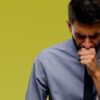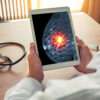Breast cancer tops the list this week with two research studies and article concluding worse news than expected. For those who continue to claim that no one overdoses on cannabis or THC, see the story below. Never underestimate how much people will underestimate the power of “herbs” to harm. Carpal tunnel brought on by drugs? I thought it was caused by repetitive stress. And to wrap it up, junk health news about junk food.
Be well.
Breast Cancer and Hormone Therapy
It’s been known that the use of MHT (menopause hormone therapy) increases risk for breast cancer. It was thought that one had to take MHT for ten years and the risk lowered when you stopped taking the drug. This large meta study (study of studies) encompassing more than 100,000 medical records shows that the risk is higher than thought and lasts longer than thought.
From the article:
20-year breast cancer risks from ages 50 to 69 inclusive would increase from 6.3 per 100 in never-users to:
- 8.3 per 100 in users of estrogen plus daily progestagen (ie, 83 in every 1,000 users would develop breast cancer) — an absolute increase of 2 per 100 users (one in every 50 users);
- 7.7 per 100 in users of estrogen plus intermittent progestagen (ie, 77 in every 1,000) — an absolute increase of 1.4 per 100 users (one in every 70 users);
- 6.8 per 100 in users of estrogen-only (ie, 68 in every 1,000 users) — an absolute increase of 0.5 per 100 users (one in every 200 users).
Increases in breast cancer risk would be about twice as great for women who use MHT for 10 years rather than 5 years.
Good news, topical vaginal MHT did not increase breast cancer occurrence.
- Menopausal hormone therapy and breast cancer incidence – Science Daily, August 29, 2019
- Type and timing of menopausal hormone therapy and breast cancer risk: individual participant meta-analysis of the worldwide epidemiological evidence – Lancet, August 29, 2019
Breast Cancer Drugs
Cyclin-dependent kinase 4/6 (CDK 4/6) inhibitors, which include palbociclib (Ibrance), ribociclib (Kisqali), and abemaciclib (Verzenio), have been identified by the FDA as causing lung inflammations. These drugs are approved for use in women with hormone receptor (HR)-positive, human epidermal growth factor 2 (HER2)-negative advanced or metastatic breast cancer.
The risk is small but significant. The FDA has determined that even with this new risk added to the profile, the benefits still outweigh the harm — though you should make the final decision for your own body. If you are taking this drug, you should be monitored regularly for pulmonary symptoms indicative of interstitial lung disease (ILD) and/or pneumonitis, such as hypoxia, cough, dyspnea, or interstitial infiltrates on radiologic exams.
- Breast Cancer Drugs May Severely Inflame Lungs, FDA Warns – MedPage, September 12, 2019
THC Overdose
A man suffering from a brain tumor overdosed on liquid THC, the psychotropic part of cannabis, in an attempt to stimulate his appetite. Instead, he entered the ER with acute delirium and garbled speech. The 1-mL syringe held approximately 500 mg of 65.9% THC. About two-thirds had been used from the package — a total of 330 mg THC, apparently consumed orally over several days, a drop or two at a time.
“A typical recreational dose is around 10 mg, so this was a highly concentrated product,” said Jeanmarie Perrone, MD, of the University of Pennsylvania in Philadelphia. He recovered after stopping the use of the THC.
- Medical Marijuana Overdose Sends Man to ER – MedPage, September 12, 2019
Carpal Tunnel Syndrome
“Carpal tunnel syndrome is sometimes medication-related. The drugs now known to expose patients to carpal tunnel syndrome chiefly include aromatase inhibiting antiestrogens such as anastrozole, exemestane and letrozole, used to treat some breast cancers; disphosphonates used in osteoporosis; oral anticoagulants; and some antiretrovirals.”
- Carpal tunnel syndrome: sometimes drug-related – Prescrire, September 1, 2019
Junk Food Science
Please don’t tell me you believed even a word about the ridiculous story of a teen went blind because if a “junk food diet.” I hate to be in the position of defending junk food, so instead, I’ll list three red flags about why you should NOT consider that article science.
- We have only the teenager’s word that he ate only junk food.
- This is not a study, it’s a claim based on one person’s experience. If it happened, it happened to one person in the history of… forever. So even if it’s true, is it likely to happen again?
- Other possibilities for the blindness were not explored.
If you need more reasons, read Gary Schweitzer’s article.
- Blind to the limitations of a single case report of teen’s “blindness caused by junk food diet” – Health News Review, September 4, 2019






